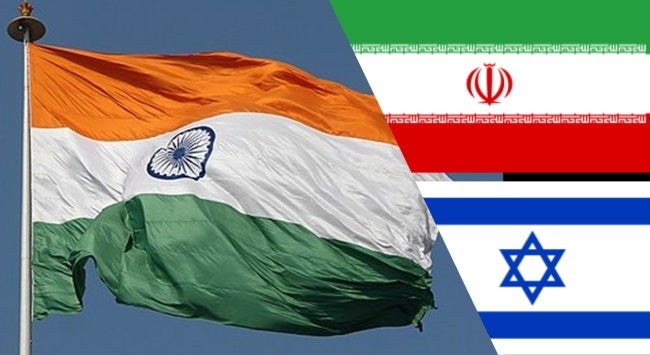Summary
The hostilities between Israel and Iran will generate economic hardships not only in the Middles East but also in other parts of the world. For India, these will primarily be inflationary impacts from crude oil prices, trade costs and escalating gold and dollar prices.
Israel and Iran have entered an intense phase of hostilities. The conflict adds to the geopolitical turbulence of the Middle East and generates economic effects with impacts for India.
The first major impact on India is the result of the escalation in crude oil prices. India is one of the largest importers of crude oil in the world after China, Europe and the United States (US). However, unlike China, which is the largest global buyer of Iranian crude oil, India’s main sources of crude are Iraq, Saudi Arabia and Russia, followed by the United Arab Emirates and the US.
While this means that India’s sourcing of crude is unlikely to be affected, it will not be immune to the sharp headwinds in the global oil market. Global crude oil prices have increased sharply after Israel’s attack on Iran. These price rises will impact India’s overall import bill. Though many Indian refiners have long-period forward contracts to purchase crude oil at previously agreed prices, future such contracts entered into now will have to factor in the prevailing higher prices. Needless to say, spot purchases of crude oil, based on immediate requirements, will be at much higher prices.
Higher crude prices will impact domestic prices across the board. Refiners are unlikely to absorb these prices and will pass them on to consumers. Liquefied petroleum gas, diesel and kerosene – all of which are refined petroleum products for common household use, including by low-income families – will become costlier. The multiplier effects of higher prices will be noticeable as energy demand is high during peak summer. Higher prices will also be experienced by civil aviation. Air travel is set to become more expensive as aviation turbine fuel prices go up.
Apart from domestic air travel, international air travel will also become costlier. Air India and other Indian carriers are already taking longer routes by avoiding the Pakistani airspace. Now, more international airlines, particularly the Middle Eastern carriers, will be rerouting their flights to avoid Israeli and Iranian airspace, leading to longer routes and higher prices. This is certainly not good news during the peak tourist season, with Indians travelling to the West, especially to holiday spots in Europe. Apart from flying costs, there are major disruptions for travel agents and tour planners as they will be forced to rework itineraries.
The second major impact for India will be from higher trade costs. Of critical importance here is the vulnerability of the Strait of Hormuz, which connects the Persian Gulf to the Gulf of Oman and the Arabian Sea, and further to the Indian Ocean. The world is abuzz with the possibility of Iran shutting down the Strait of Hormuz and choking the shipment of oil from the Persian Gulf to the rest of the world. For India, along with several other countries in Asia and Europe that are critically dependent on oil supplies from the Gulf, a blocked Strait of Hormuz is of grave concern. Not only will oil supplies reduce, but they will also be plagued by uncertainties, as shipping lines adjust to the troubles.
Higher trade costs will emerge from elsewhere also. The Suez Canal – the main route for shipping goods from India to Europe – has already been facing disruptions since the COVID-19 pandemic. Congestion in the narrow waterway has been impeding the flow of traffic, leading to longer passage times. The delays increased after the Houthi attacks that began after the outbreak of hostilities in Gaza in October 2023. There are possibilities of more rogue attacks on commercial carriers after the attacks on Iran.
Avoiding the Suez Canal means taking the much longer route through the Strait of Gibraltar. If shippers are forced to divert, it will mean higher container costs for exporters due to longer transit times; greater premiums for travel insurance; and longer cargo holding time due to uncertainties regarding the availability of vessels. All these come on the back of a sharp rise in the value of the US dollar vis-à-vis the Indian Rupee, exacerbating invoicing costs for Indian exporters and importers.
Domestic inflation prospects in India will be aggravated by the sharp escalation in gold prices. Geopolitical volatility never fails to trigger the urge to invest in ‘safe havens’. The tendency is visible through a sharp rise in the prices of the US dollar, and gold and silver. Unless there is a quick resolution of the Iran conflict, precious metal prices will remain high into the festive season, which commences in India in about three months. Consumer pockets and household budgets will feel the squeeze from the cumulative higher costs. For much of India, high prices from exogenous shocks such as the Iran conflict, is clearly not great news in a year when the overall prospects for economic growth are more subdued than in the previous years.
. . . . .
Dr Amitendu Palit is a Senior Research Fellow and Research Lead (Trade and Economics) at the Institute of South Asian Studies (ISAS), an autonomous research institute at the National University of Singapore (NUS). He can be contacted at isasap@nus.edu.sg. The author bears full responsibility for the facts cited and opinions expressed in this paper.
Pic Credit: Wikimedia Commons and ISAS-NUS
-
 More From :
More From :
-
 Tags :
Tags :
-
 Download PDF
Download PDF



